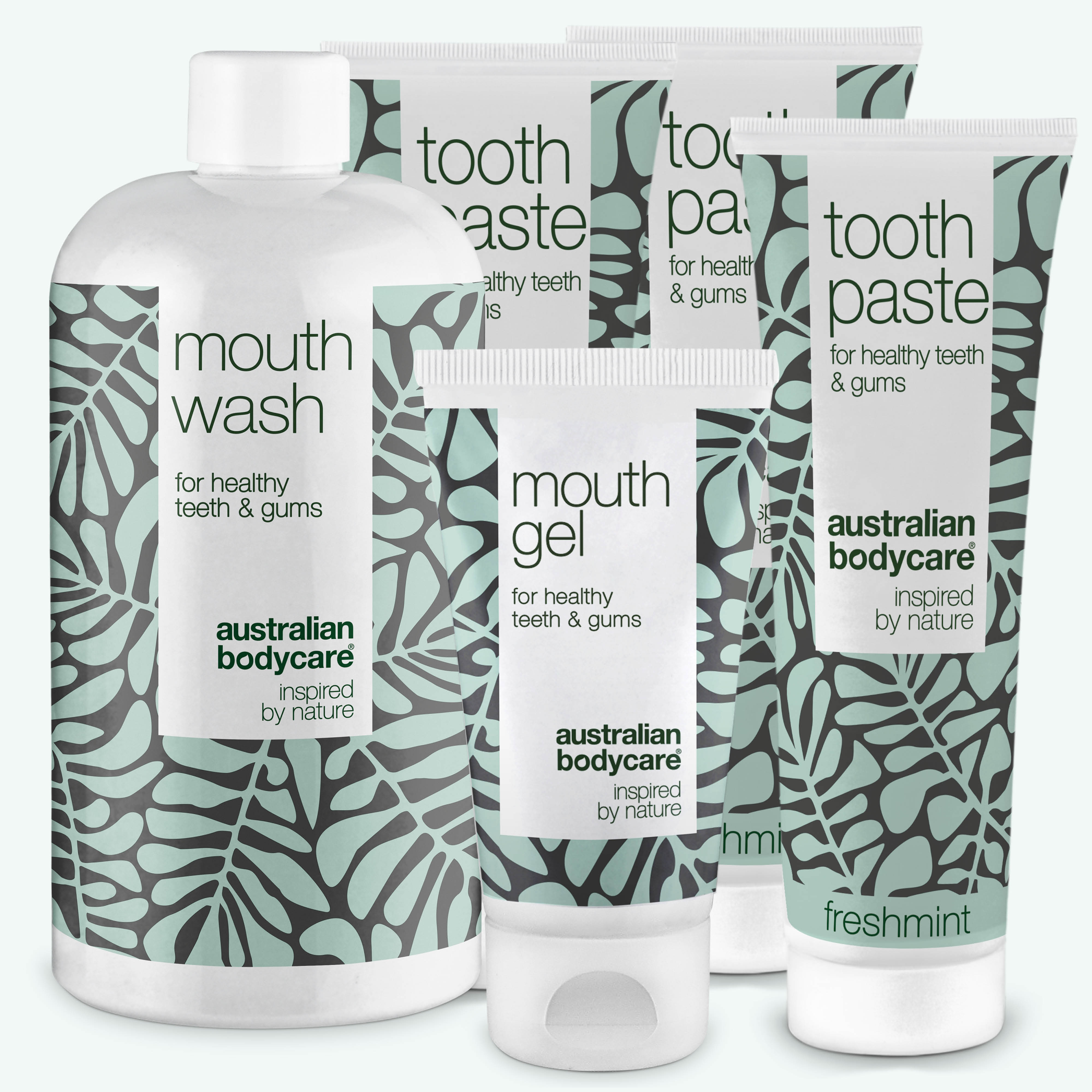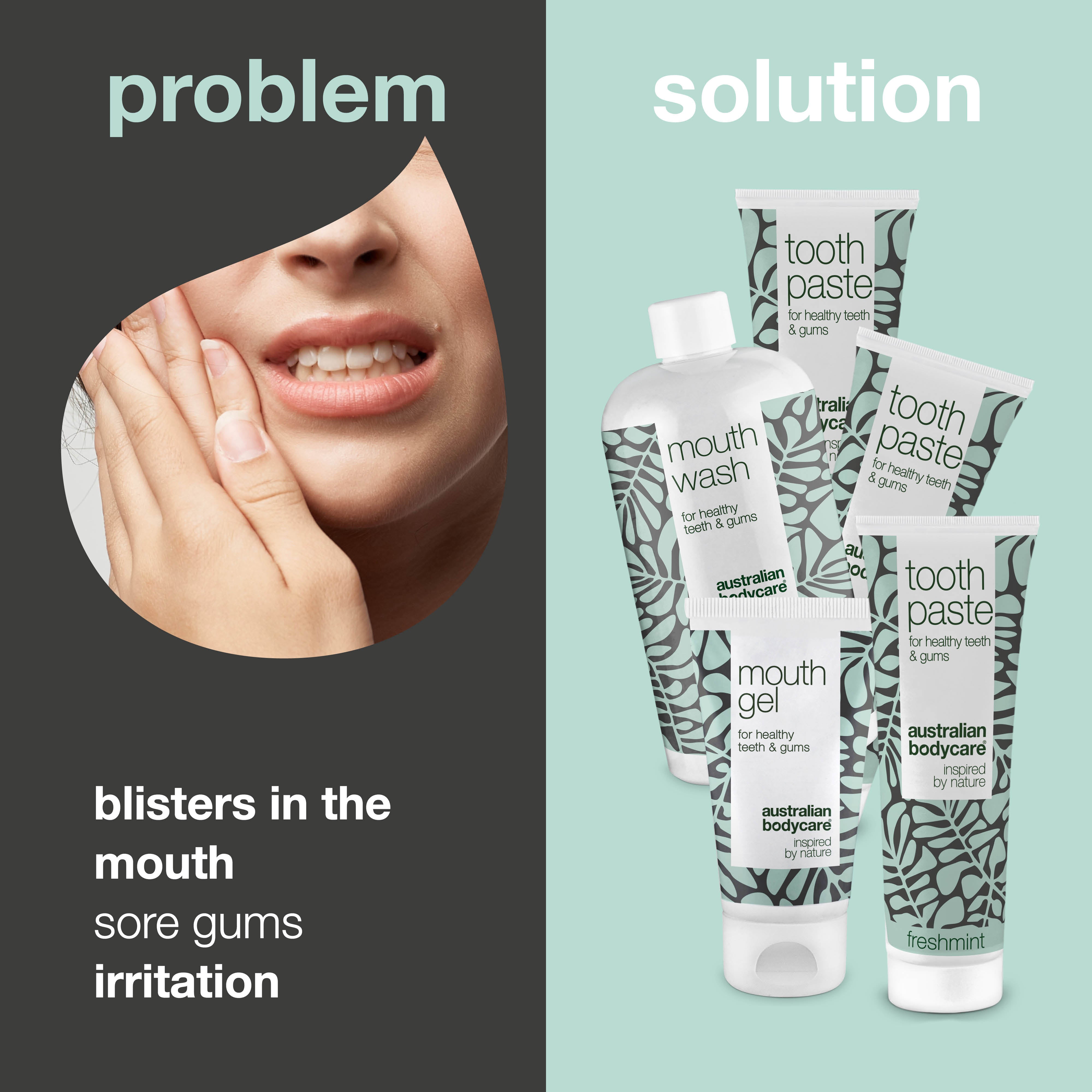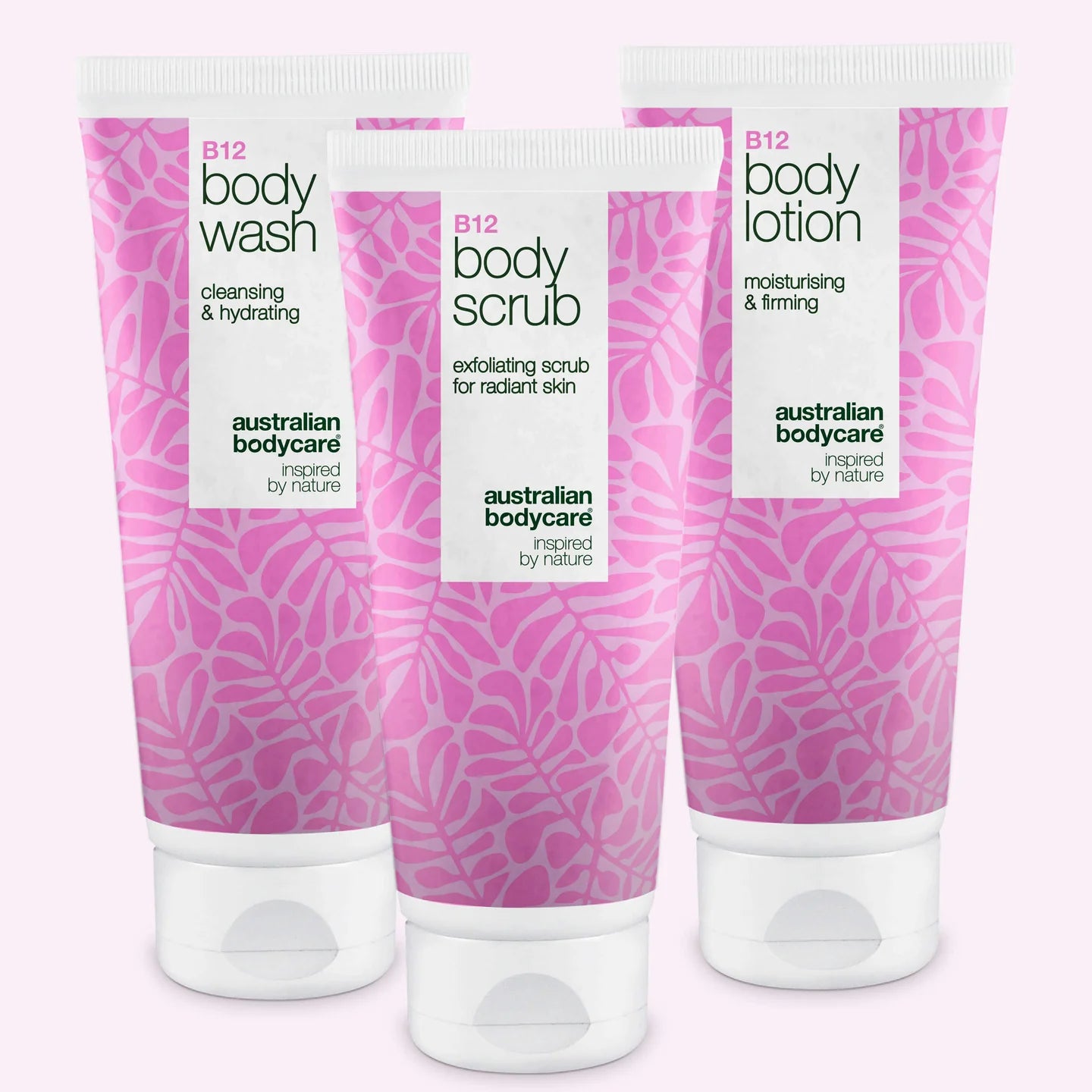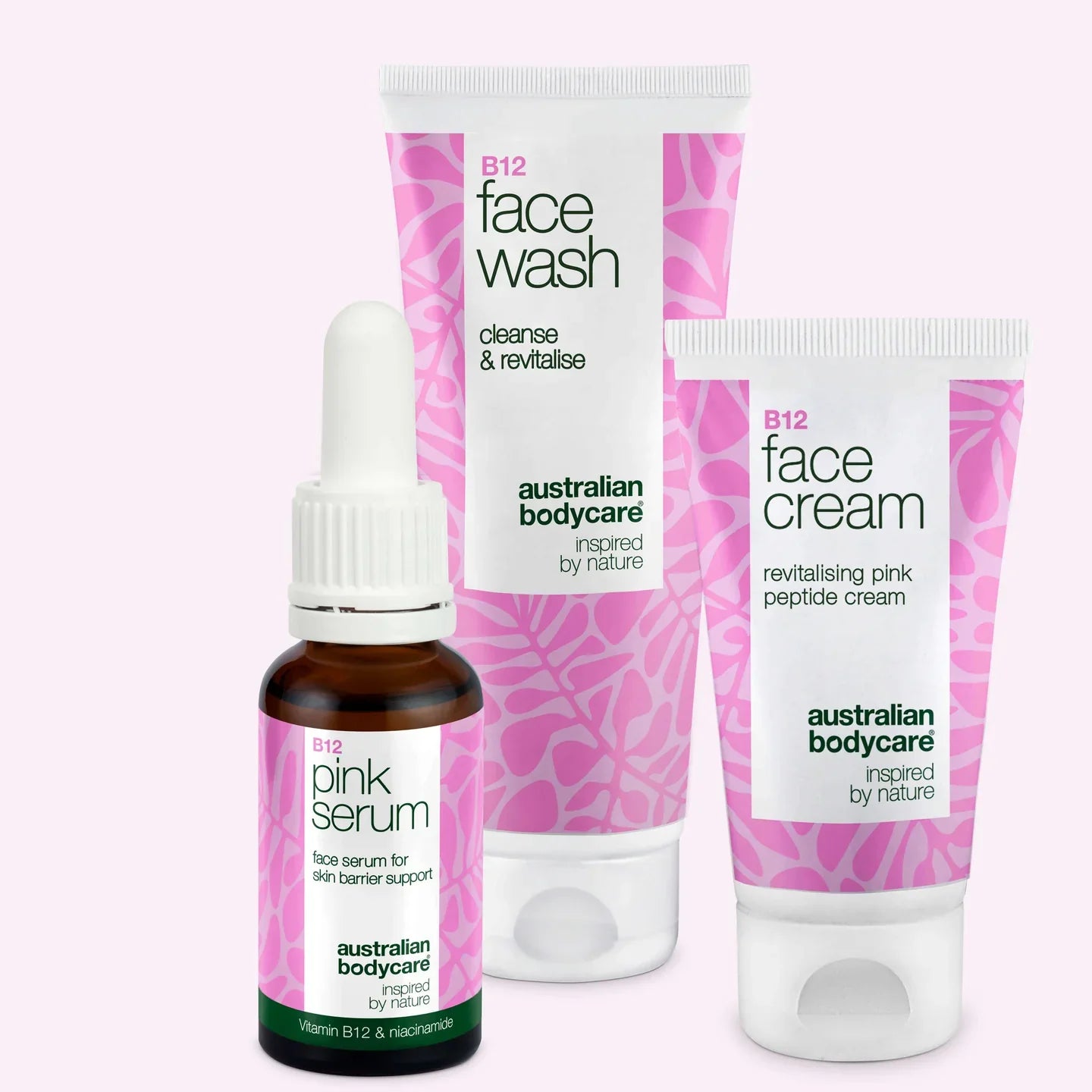Experiencing throat ulcers or on the palate? Learn how to get help!
Many people, both children and adults, typically get ulcers in their mouths, but they can actually also appear in the throat/palate. When you have ulcers in the throat, it can be due to irritation of the mucous membrane from, for example, excessive coughing or illness.
Table of contents
What are ulcers in the throat, palate, and pharynx?
Ulcers in the throat, palate, and pharynx occur as painful sores and can vary in size and location. These ulcers can be caused by infections, allergic reactions, or damage caused by heat or chemicals.
Definition
Ulcers are small sores that appear in the mouth, such as on the tongue, palate, throat, or inside of the cheeks. They can vary in size, and sometimes they hurt or create a burning sensation.
Stress, vitamin deficiency, and irritation from illnesses can cause these ulcers. People can experience them differently; some get them often, while others rarely have problems.
Causes of ulcers
Many things can lead to the development of ulcers in the mouth area. Stress can be a major culprit. It wears down the body and can cause sores to appear easily. Vitamin deficiency also plays a big role. Without enough vitamins, the body's defenses don't work properly. This makes the oral cavity more vulnerable to attacks. Certain diseases like diabetes and celiac disease can also increase the risk. These conditions change the body's balance and can lead to mouth problems.
Bacteria and viruses are often to blame for these irritations. For example, a simple cold or chickenpox can cause ulcers. Medications and certain chemicals in everyday products also contribute. Toothpaste with sodium lauryl sulfate can irritate some people more than others. Poor oral hygiene or not going to the dentist regularly creates an environment where bacterial and fungal infections thrive.
Symptoms of ulcers in the throat, palate, and pharynx
ulcers in the throat, palate, and pharynx can cause sore throat, discomfort when swallowing, and red spots or sores in the mouth and pharynx. These symptoms can cause stinging and general discomfort that requires attention.
Sore throat
A sore throat is irritation in the mucous membrane of the throat. It often happens after excessive coughing or due to illnesses. This pain can feel sharp and make swallowing difficult. Most of the time, the pain will go away on its own within a week.
A swelling in the throat should be checked by a doctor. This is important to ensure there are no serious problems behind the pain. Monitoring symptoms and acting quickly can help avoid bigger health challenges.
Stinging and discomfort when swallowing
Stinging and discomfort when swallowing can be signs of ulcers in the throat, palate, or pharynx. These ulcers can cause discomfort, especially when eating or drinking. Causes of this condition can include various factors such as infections, injuries, or irritation of the mucous membrane.
Red spots or sores in the mouth and pharynx
Red spots or sores in the mouth and pharynx can be signs of ulcers in the throat, palate, and pharynx. These sores can cause pain and discomfort when swallowing. There may be a connection between stress or vitamin deficiency and the occurrence of these sores. Good oral hygiene and strengthening the immune system can help prevent and relieve these symptoms.
Treatment and prevention of ulcers in the throat, palate, and pharynx
Rinsing with saltwater can relieve pain and speed up the healing process. Local anesthetics can also help alleviate discomfort. Oral hygiene and strengthening the immune system are essential to prevent future cases.
Pain relief
Pain relief can be achieved through various methods, including:
1. Rinsing with a bactericidal mouthwash containing chlorhexidine to relieve pain and promote healing.
2. Rinsing with saltwater to help reduce inflammation and discomfort in the throat.
3. Using local anesthetics such as medicinal lozenges or over-the-counter medications for direct pain relief.
4. Good oral hygiene, including regular brushing and flossing to prevent infections and speed up the healing process.
5. Strengthening the immune system through a healthy diet and regular exercise to help the body fight infections and promote faster healing.
Saltwater rinse
Rinsing with saltwater helps reduce inflammation and create optimal conditions for healing. It is an effective and natural method for treating ulcers in the throat, palate, and pharynx. Here are some benefits of rinsing with saltwater:
1. Reduces bacteria: Saltwater solutions can help reduce the number of harmful bacteria in the throat area.
2. Relieves pain: Rinsing with saltwater can relieve pain associated with ulcers by creating a soothing effect on irritated areas.
3. Promotes healing: The mild disinfecting effect of saltwater can promote the healing process by cleaning the sores and reducing inflammation.
4. Prevents infections: Regular use of saltwater rinse can help prevent infections and avoid further complications.
5. Reduces swelling: It can help reduce swelling and discomfort in the throat area, making it easier to swallow and speak.
6. Safety: Rinsing with saltwater is a safe and affordable method that usually has no side effects or interactions with other medications.
Regular use of saltwater rinse can provide relief and speed up the healing process for ulcers in the throat, palate, and pharynx.
Local anesthetics
Local anesthetics can relieve the pain of ulcers in the throat, palate, and pharynx, as well as reduce discomfort when swallowing. These products are available as over-the-counter lozenges at the pharmacy. Follow the instructions carefully to avoid negative side effects from excessive use. These products should only be used temporarily and supplemented with other treatment methods such as rinsing and preventing further blister outbreaks. Seek medical attention for persistent or worsening symptoms. For frequent or severe ulcers, seek advice from a doctor or dentist.
Good oral hygiene
Good oral hygiene plays a crucial role in preventing ulcers in the throat, palate, and pharynx. Here are some effective ways to maintain good oral hygiene:
1. Brush your teeth thoroughly twice a day with fluoride toothpaste to remove plaque and bacteria.
2. Use dental floss daily to remove food particles and plaque between teeth, which can prevent the development of sores and ulcers.
3. Rinse your mouth with an alcohol-free mouthwash to fight bacteria and reduce the risk of infections.
4. Visit the dentist regularly for check-ups and cleanings, as well as treatment of any dental problems.
These habits can help maintain a healthy mouth without ulcers and other problems related to the pharynx, throat, or palate.
Strengthening the immune system
To strengthen your immune system and reduce the risk of ulcers in the throat, palate, and pharynx, you can follow these recommendations:
1. Eat a healthy and varied diet that includes plenty of fruits and vegetables as well as whole grains.
2. Exercise regularly to keep the body strong and the immune system active.
3. Avoid smoking and limit alcohol consumption to protect the immune system.
4. Ensure adequate rest and sleep, as lack of sleep can negatively affect the immune system.
5. Minimize stress through meditation, yoga, or other relaxation methods, as stress can weaken the immune system.
These steps will help strengthen your body's natural defenses against infections and diseases.
Conclusion
Ulcers in the throat, palate, and pharynx can be annoying and affect people of all ages. To prevent and manage these symptoms, good oral hygiene is essential. Regular rinsing with saltwater or chlorhexidine can not only relieve symptoms but also help maintain a healthy mouth environment that reduces the risk of future outbreaks. If you experience persistent sore throat or frequent ulcers lasting more than a week, it is important to seek advice and treatment from a dentist to ensure there are no underlying issues that require attention.
FAQ
Why do I get ulcers in my throat?
Ulcers in the throat can be caused by several factors, including viral infections such as hand, foot, and mouth disease, herpes simplex, or reactions to certain bacteria. Other causes can include autoimmune diseases, stress, hormonal changes, or poor nutrition.
How are ulcers effectively treated?
The treatment of ulcers depends on the cause. Mild pain relief can be achieved with mouthwashes containing hyaluronic acid. For virus-related ulcers, symptom relief may be the focus, while bacterial infections may require antibiotics. Ensure good oral hygiene and avoid irritating foods.
When should I see a doctor for my ulcers?
See a doctor if the ulcers are persistent, worsening, or if you experience high fever, severe pain, difficulty eating or drinking, or if the ulcers spread to other parts of the body. This may indicate a more serious condition that requires professional treatment.





